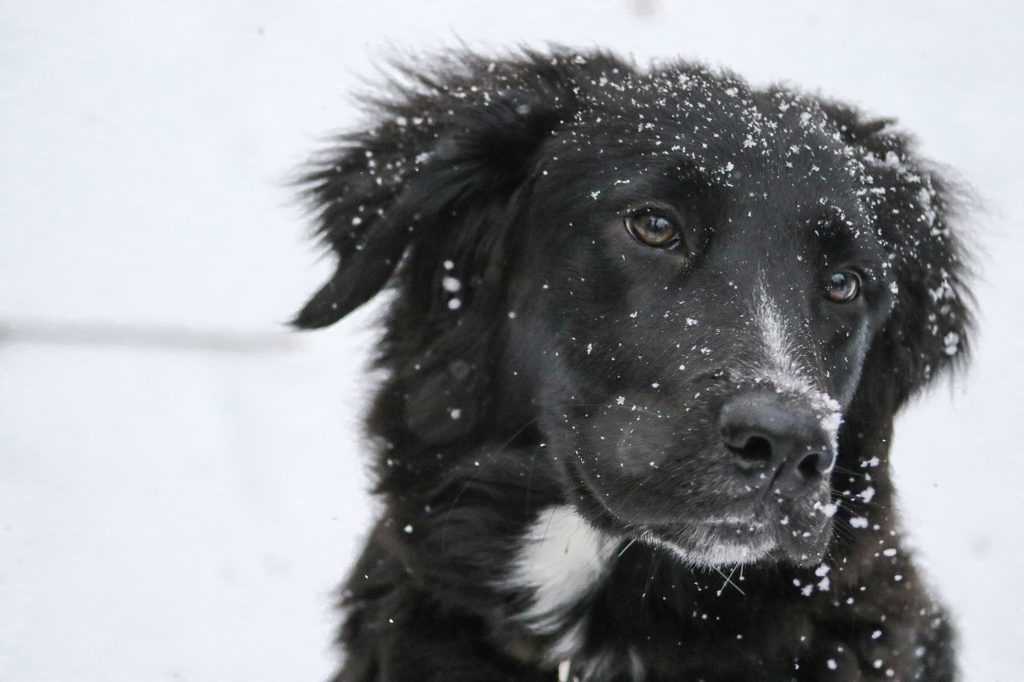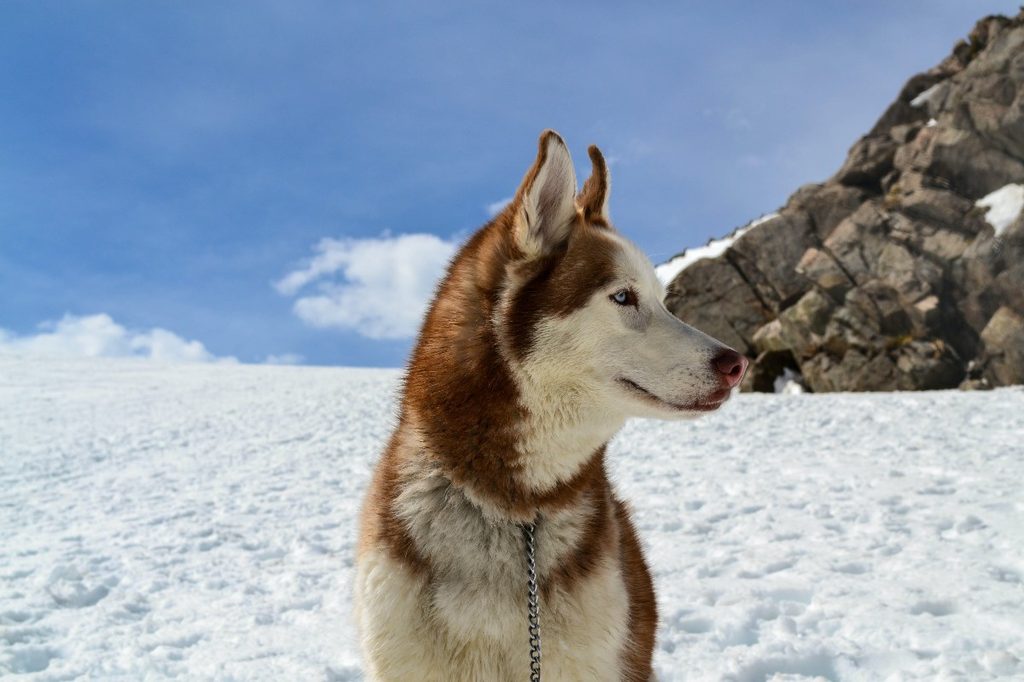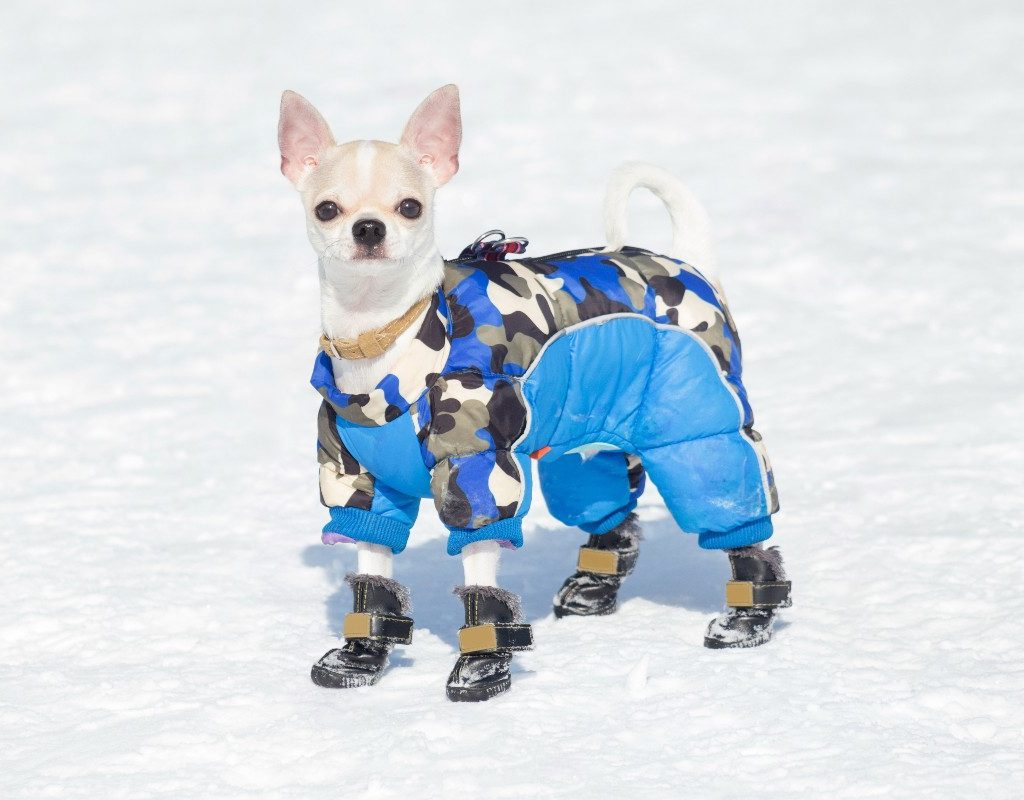Maybe it’s about to get frigid in your hometown, or perhaps it already has. Alternatively, maybe you live in a warm-weather state, but the temperatures are still about to drop lower than your pup is used to, making morning or evening walks more frightful than delightful.
When the weather gets cold, humans typically swap sweaters for heavy coats and shoes for boots. Dogs already have natural fur coats — though some benefit from sweaters and jackets. Can the same be said for footwear? Should you invest in winter boots for your dog? What happens if you do and Fido won’t wear them? Are morning walks off the table?
Chill for a second. We consulted experts on the pros and cons of winter boots for dogs.

Are winter boots for dogs necessary?
The answer to this burning question depends on who you ask.
One pro says they’re a winter must-have for dogs.
“[Boots] are necessary to protect a dog’s delicate paws from frostbite and injuries, especially during long walks,” said Paola Cuevas, MVZ, a veterinarian and behaviorist with Hepper.com.
Other experts weren’t as definitive.
“This entirely depends on your dog and where you’re walking,” said Ali Smith, the CEO and founder at Rebarkable.
Thomas Bohne, the founder of the pit bull advocacy Kennel to Couch, agreed with Smith.
“Many dogs are built to withstand the cold — that is until the temperatures fall below freezing,” Bohne said.

What dogs need to wear winter boots?
Cuevas believes every dog needs to don a pair of boots, even breeds whose ancestors used to brave the cold.
“While some dog breeds such as the Siberian husky and the Alaskan malamute were developed to survive in cold weather conditions and thus, they are less prone to suffer frostbite or hypothermia, in reality, every dog from any breed runs the risk of frostbite and hypothermia when exposed to cold temperatures and freezing temperatures for a length of time,” Cuevas said.
Another expert says it’s less necessary for these types of dogs, though.
“Dog booties are not a necessity for all dogs, as many dogs, medium to long-haired dogs, will have fur that grows covering partially the paw pad leaving it protected from cold surfaces,” said Renee Rhoades, the head dog behavior consultant at R+Dogs.
You know your dog better than anyone. Consider trying boots if they’re having trouble or experiencing irritation during walks. Also, if long walks in winter wonderlands are a way you bond, boots will keep your dog safe. On the other hand, people just going out to get their dogs to use the facilities may not need to invest in a pair of boots.

What are the benefits of winter boots for dogs?
What’s the big deal about wearing winter boots? Experts share that boots are more than just a fun fashion statement. They’re functional to boot. Wearing boots protects a dog from:
- Frostbite
- Hypothermia
- Irritation from salt
- Poisoning licking the salt
- Protection from very hot surfaces
Frostbite is dangerous to dogs and can occur when the temperatures dip below freezing, according to VCA. The paws are one of the most common places where dogs become frostbitten. Though the prognosis is good for mild frostbite, it’s still not comfortable for pups, and more severe cases can cause permanent issues and even amputation. Prevention is the best medicine, and booties are one tool.
Hypothermia is also a risk to dogs that can result in cardiac arrest and even death. It’s important to note that one of the best defenses against hypothermia is not boots but not leaving your dog outside for long periods in the cold. However, boots can keep their body temperatures up even when the mercury on the thermometer is dipping.
To keep ice at bay, local crews often put down salt. It can help prevent slips but might irritate your pet’s paws.
“The salt used in many places to melt snow and ice from pathways can cause skin irritation to your dog on contact,” Cuevas said.
The salt can be toxic to dogs if they lick it off their paws. Booties prevent it from getting on paws in the first place. Though we often think of boots as a cold-weather item, they also have benefits in hot climates by protecting a pup’s paw pads from burns and discomfort.
“Any dog that needs to walk over extremely cold — and also extremely hot — surfaces should be using protection,” Cuevas stated.
Humans may wear winter boots, but should dogs? It depends on who you ask, and ultimately, your dog and situation. Some pets do fine without them and even prefer not to wear them. It may not be worth it to make a Siberian husky, built for cold weather, to wear boots, particularly if they aren’t interested. However, smaller dogs may benefit from them, such as Chihuahuas. Additionally, you want to put a pair of boots on your pup if you’re taking a long walk.
Winter boots can protect a pet from frostbite and hypothermia and irritation from salt. In hot climates, boots can protect against burns and discomfort. That said, one of the best steps you can take in cold weather is to keep outdoor time to a minimum. As helpful as dog booties may be, hypothermia and frostbite often occur when a dog is outside for long periods, not a quick potty break.



